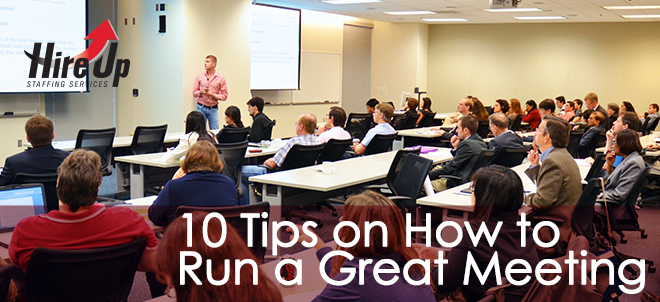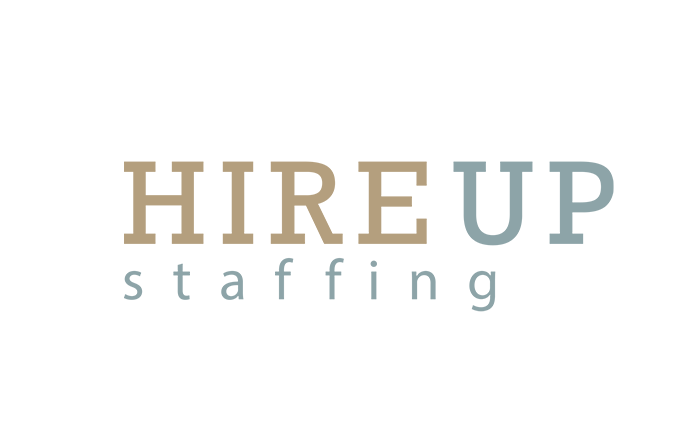
Have you ever sat through a boring meeting at work?
Mundane meetings are about as effective as walking on a treadmill while eating a slice of pizza, pointless. If the information given is not direct, interesting, valuable, and delivered in an organized manner, you may as well not have the meeting. People tend to “zone out” and get distracted if you don’t find a way to draw them in. We have developed 10 tips to help you run a great meeting at work.
1. To start, the meeting should begin and end on time! Starting anything late is attributing to bad habit building. People subconsciously start thinking that it is okay to be late if you are. Set a good example and show up early! This will give you time to prepare for the meeting. Ending the meeting on time is important because you want to keep people excited about being there. If you run over, give them a heads up by saying “We have only covered 7 of the 10 topics, so we may be an extra 15 minutes”. This way people know that there is an end in sight.
2. Don’t dive right in! Spend a little time in group conversation. This is very important and productive in that it gives a chance to relate on a more personal level before the serious topics begin. People in a work setting need to build friendships and have the chance to show their personalities. This process helps to establish rapport.
3. If people in the meeting are not into it, find a way to draw them out. Ability to grab the floor doesn’t necessarily correlate with capacity to contribute.
4. Meetings often involve blame-giving and blame-taking, and although it’s not pleasant to accept blame, it’s a necessary aspect of getting responsibility (if deserved, of course). This dramatically increasing organizational credibility on all sides.
5. Along with blame, a meeting is also a great place to give people credit for their ideas and accomplishments. Be quick to point out great work or to call for a round of applause for a colleague. For some reason, people often act as though credit is a zero-sum goody, and if they share credit, they’ll get less themselves. Sharing credit not only doesn’t diminish the number of gold stars you get, but adds to them – because people so admire the ability to give credit.
6. Have an agenda and stick to it. If possible, circulate the agenda in advance, along with anything else that needs to be read to prepare for the meeting. Make sure people know if they should bring anything. Along the same lines…
7. Standing meetings should be kept as short as possible and very structured. Have rules for canceling the meeting when appropriate – if such-and-such doesn’t happen; if only a certain number of people can attend, etc.
8. Don’t say things that will undermine or antagonize other people. Turns out they do in fact notice this, and they don’t appreciate it.
9. If a meeting is long, schedule breaks when people can check their email and phones. Otherwise, they get very distracted by feeling they’ve been out of touch for too long (for some people, this takes about ten minutes), and they start sneakily emailing under the table. As if no one will notice. Which they do.
10. Meetings should stay tightly focused. If people want a chance to discuss side issues, theoretical problems, or philosophical questions that aren’t relevant to the purpose of the meeting, they should set up a separate meeting.
Hire Up Staffing is here to help you with all your staffing needs! Looking for an employee? Looking for work? Call us today at (559)579-1331.



